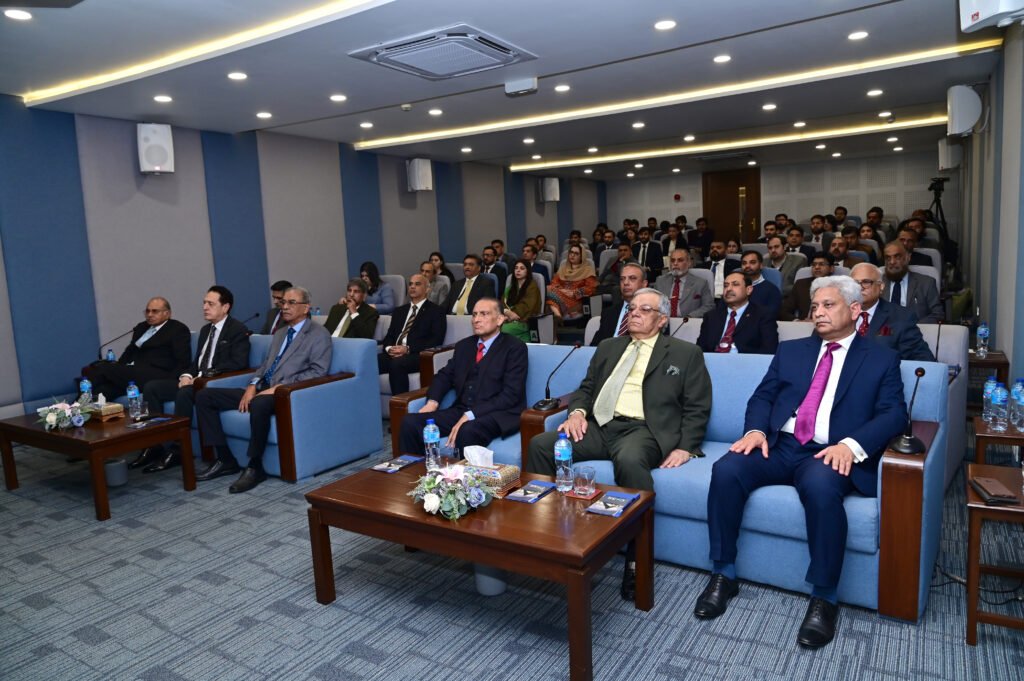
Seminar
Power Plays amid Shifting Sands: Geopolitical Recalibrations in a Post-Assad Middle East
About The Event
On 8 December 2024, President Bashar al-Assad’s regime fell like a house of cards to a stunning offensive by Syrian rebels, led by Hayat Tahrir al-Sham (HTS), which lasted only a few days, sending shockwaves throughout the world. Mr Assad fled Syria and was given refuge in Moscow. With the help of Russia and Iran, he had held the upper hand against the armed opposition since the start of the civil war in 2011. The post-Assad Middle East presents a complex paradigm marked by shifting power plays as global and regional actors recalibrate their strategies to maximise their influence in this vital region.
The conflict between Hamas and Israel ignited the geopolitical cauldron of the Middle East in October 2023. Soon, the hostilities spilled over from Gaza to Iran’s proxies in Lebanon, Syria, Iraq, and Yemen. The Israeli war machine enjoyed military superiority and had a free hand to carry out genocide against the Palestinians. In doing so, it was losing the battle of public opinion, even in Western capitals. However, the tit-for-tat direct strikes between Iran and Israel shifted the focus from the Israeli murderous campaign to Iran’s support for its proxies, which were considered ‘terrorist outfits’.
These developments created a power vacuum in Syria, inviting increased intervention from regional powers and external actors. The US seeks to regain its lost influence and shape a Middle East that poses no threat to Israel. Another US interest could be to see a pro-democracy uprising in Iran. Russia, having invested heavily in the Assad regime, faces a dilemma. China upholds the principle of a “Syrian-led and Syrian-owned” resolution.
The events in Syria have left Tehran with a bruised image. Türkiye may seek to reassert its influence in areas where it once held sway while balancing relations with NATO, Russia, and Iran. Saudi Arabia may find its strategic interests pulled in different directions as the region grapples with the fallout from these conflicts. The fate of an independent state of Palestine remains uncertain.
As a traditional key player in the Islamic world, Pakistan has vital stakes in the region. Under these radically altered circumstances, Pakistan needs to reposition itself in the region. This seminar closely examined the emerging trends and suggested policy options.
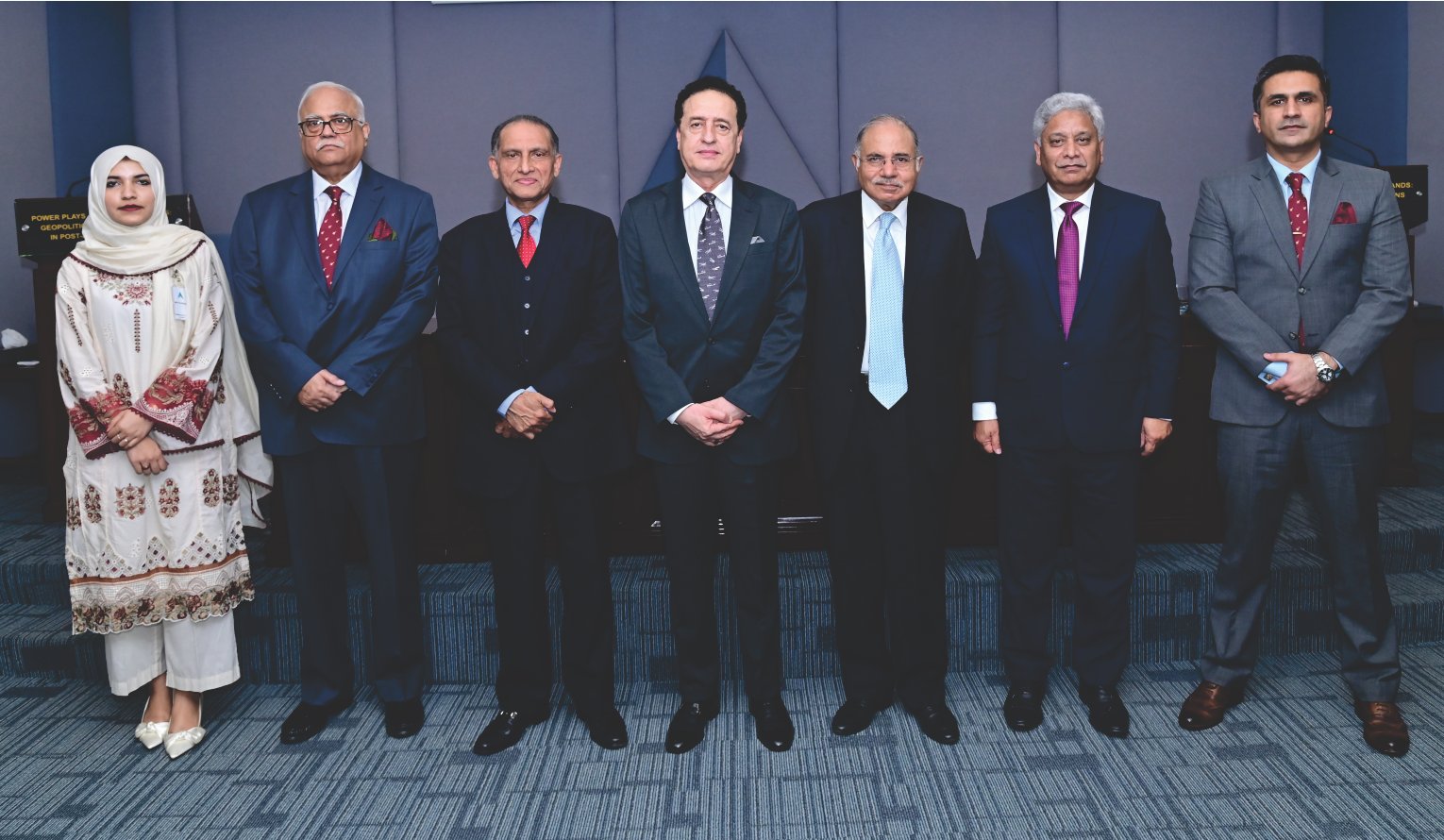
Key Takeaways
- Shifting Sands: Global Landscape
The world is transitioning from a unipolar to a fragmented multipolar order, marked by rising narrow nationalism, great power contestation, and weakening global norms. The side-lining of the UN, evolving alliances, and the shift of warfare into hybrid forms further define this transition.
- Geo-economics and Tech Shifts
The US is restructuring global supply chains amid an intensifying trade war with China, driving technological bifurcation, particularly in AI.
- Geopolitical Recalibrations in the Middle East
The fall of the Assad regime has created a power vacuum in Syria, necessitating an inclusive, reconciliatory, and collective approach by the international and Arab communities to prevent further fragmentation and proxy wars.
- Iran’s Diminished Regional Role
The fall of the Assad regime is a significant loss for Iran. Iran is under mounting pressure, while Hamas and Hezbollah have been considerably weakened.
- Iran’s Nuclear Options
There are two schools of thought. While figures like Javad Zarif advocate a return to the nuclear deal, hardliners favour full nuclearisation. If Iran becomes a nuclear power, it could prompt countries like Saudi Arabia and Egypt to follow suit.
- Saudi Strategic Objectives
Saudi Arabia, a status quo power, seeks regional dominance. In Syria, Riyadh’s ultimate goal was to “pull Syria away from Tehran’s strategic orbit.” Saudi Arabia also supported regime change in Syria, an objective shared by other GCC states.
- Israel’s Expansionist Agenda
Taking advantage of the chaos in Syria, Israel occupied more areas of the Golan Heights and the buffer zone. Israel may have a long-term strategy for a “Greater Israel.”
- Israel-Hamas Ceasefire
Israel has already breached several terms of the agreement, raising doubts about the materialisation of the next phases.
Policy Considerations
- Pakistan’s Principled Stance on Syria
Pakistan should maintain its consistent and principled stance supporting Syria’s unity, sovereignty, and territorial integrity. The way forward for Syria lies in fostering inclusivity, reconciliation, and reconstruction.
- Pakistan’s Role in The Middle East
Together with other major Islamic countries, Pakistan must act as a factor of peace and stability in the Middle East. Pakistan may adhere to its policy of strong support for the Palestinian cause.
- Regaining Its Lost Space in Gulf Arab States
To regain its lost ground in Gulf Arab states, Pakistan requires a more proactive approach to deepening bilateral ties, particularly in economy, trade, and investments.
- Regional Security Cooperation
Pakistan may continue to play an important role in regional security, by offering defence training, contributing to military exercises, and participating in maritime security in the Gulf, through CTF-150 and CTF-151.
- Vigilance Over Indo-Israeli Strategic Relationship
Pakistan has to remain extra vigilant about the evolving Indo-Israeli strategic relationship, underpinned by the ideological alignment between Indian Prime Minister Narendra Modi and Israeli Prime Minister Benjamin Netanyahu. Both leaders espouse a doctrine of ethnic cleansing and territorial occupation.
- Potential Abraham Accords 2
If Saudi Arabia were to join the Abraham Accords down the line, Pakistan would be under pressure to reassess its stance. In such an eventuality, Pakistan may coordinate its position with other major Islamic countries.
- Safeguarding Strategic Ties with China
In the ongoing global contestation between the US and China, Pakistan may come under pressure to distance itself from China. Pakistan must preserve its iron-clad strategic partnership with China which is Pakistan’s time-tested and reliable friend.
- Maintaining Friendly Ties with Iran
Pakistan may face pressure to lower its ties with Iran. Pakistan may maintain its friendly relations with Iran. All efforts should be made not to alienate Iran, an important Muslim neighbour.
- Focus on Domestic Stability
Pakistan should attach top priority to strengthening its economy, promoting its internal security, forging political stability, and moving towards self-reliance. That will also enhance Pakistan’s regional credibility.

Post Event Report
A comprehensive report capturing expert analyses, strategic insights, key recommendations, media coverage, and event highlights.
Guest Speakers
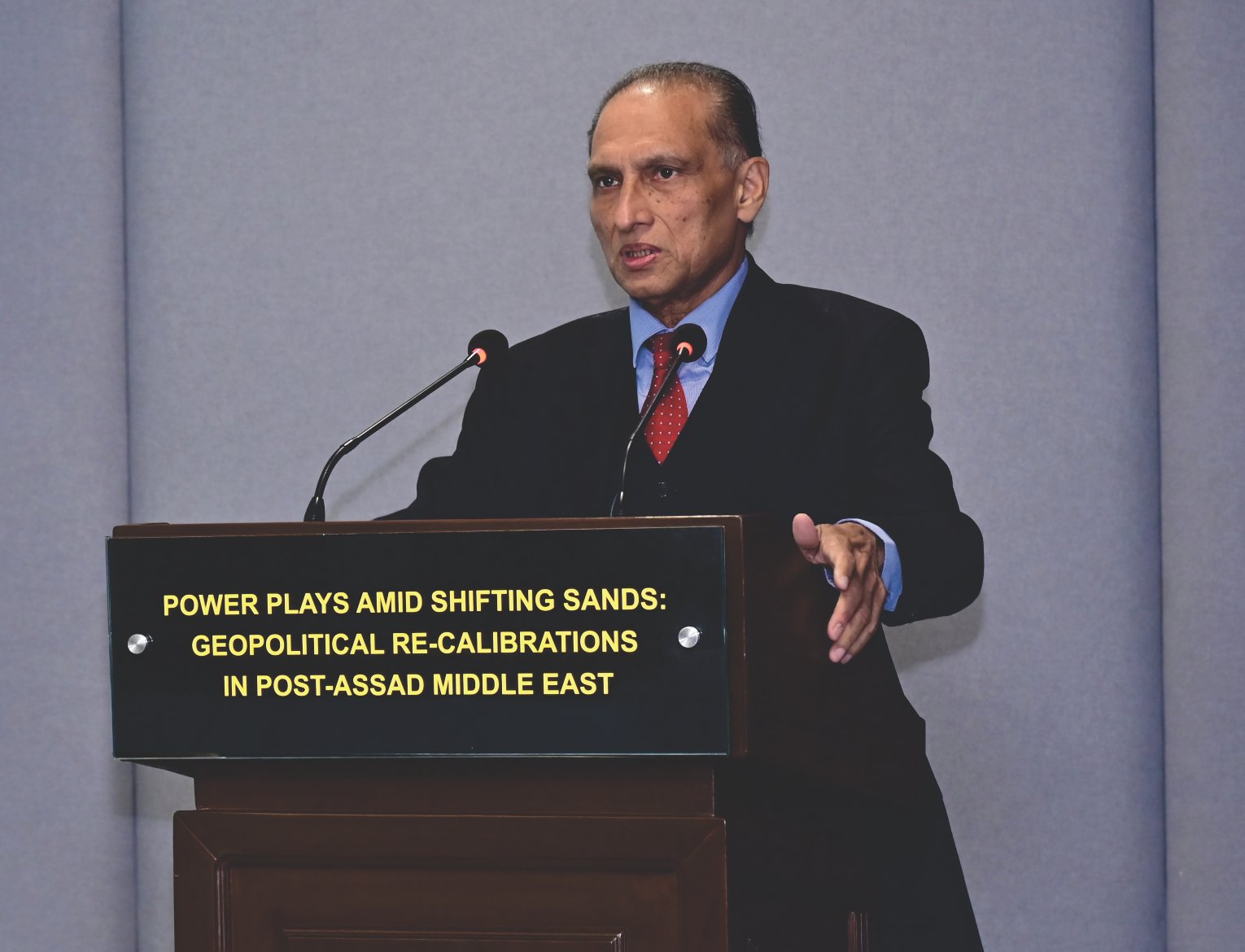
Ambassador Aizaz Ahmed Chaudhary (Retd)
Former Foreign Secretary, Pakistan
Dr Nazir Hussain
Professor, Quaid-e-Azam University, Islamabad


Ambassador Javed Hafeez (Retd)
Former Pakistani Diplomat

Event Chair
Air Marshal Asim Suleiman (Retd)
President, CASS Lahore
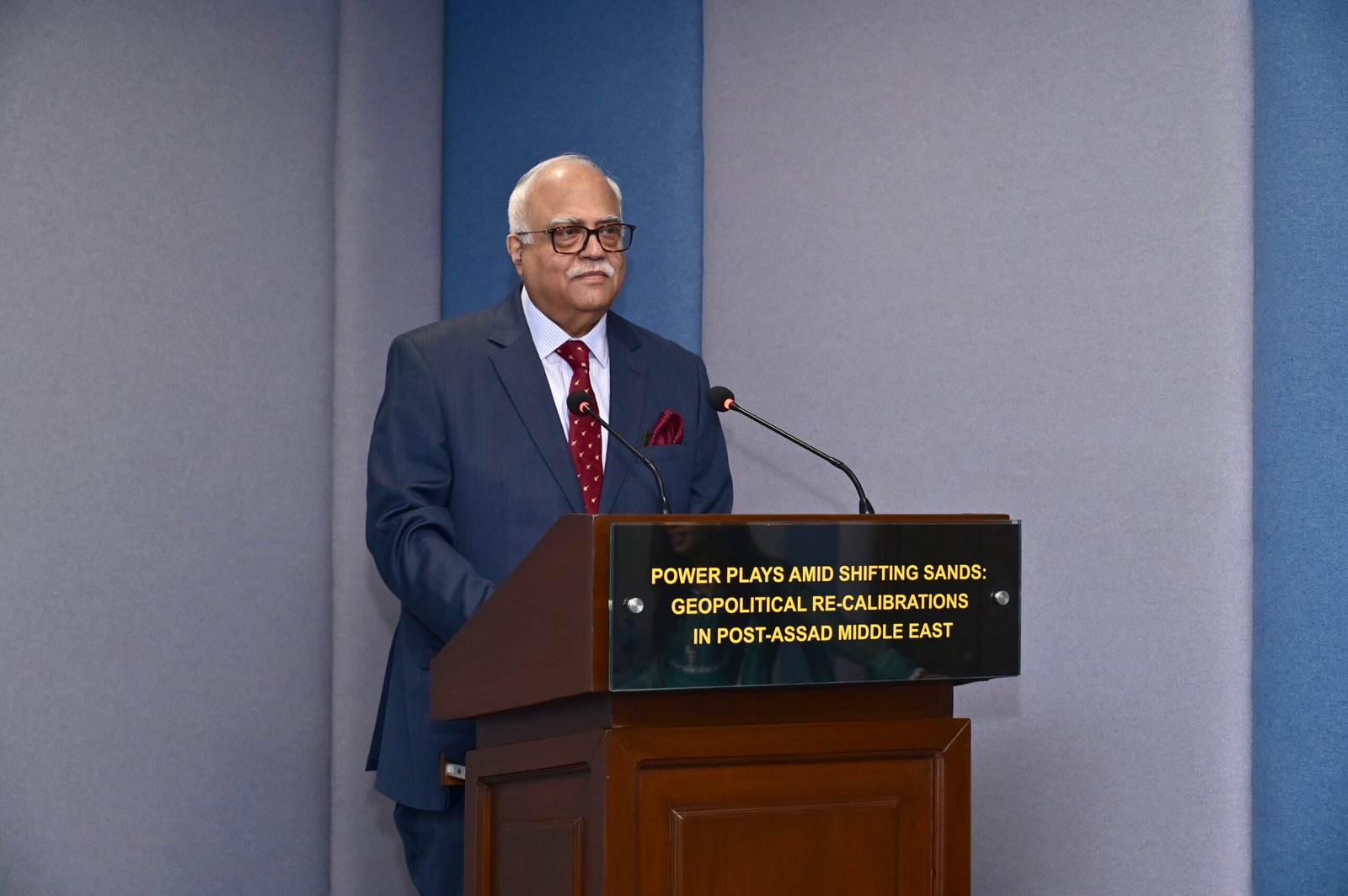
Event Coordinator
Ambassador Muhammad Haroon Shaukat (Retd)
Director Foreign Affairs, CASS Lahore
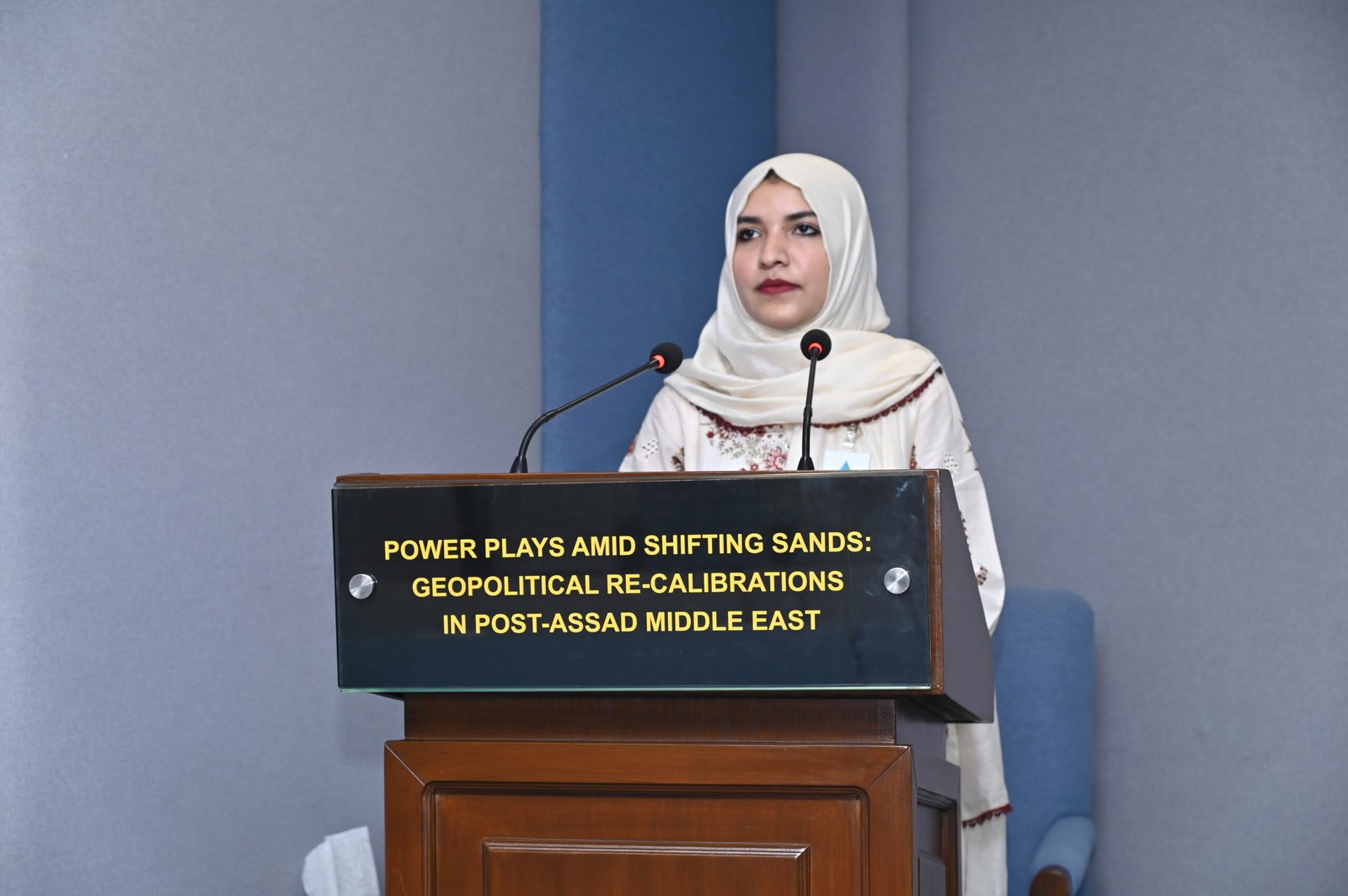
Master of The Ceremony
Ezba Walayat Khan
Researcher, CASS Lahore


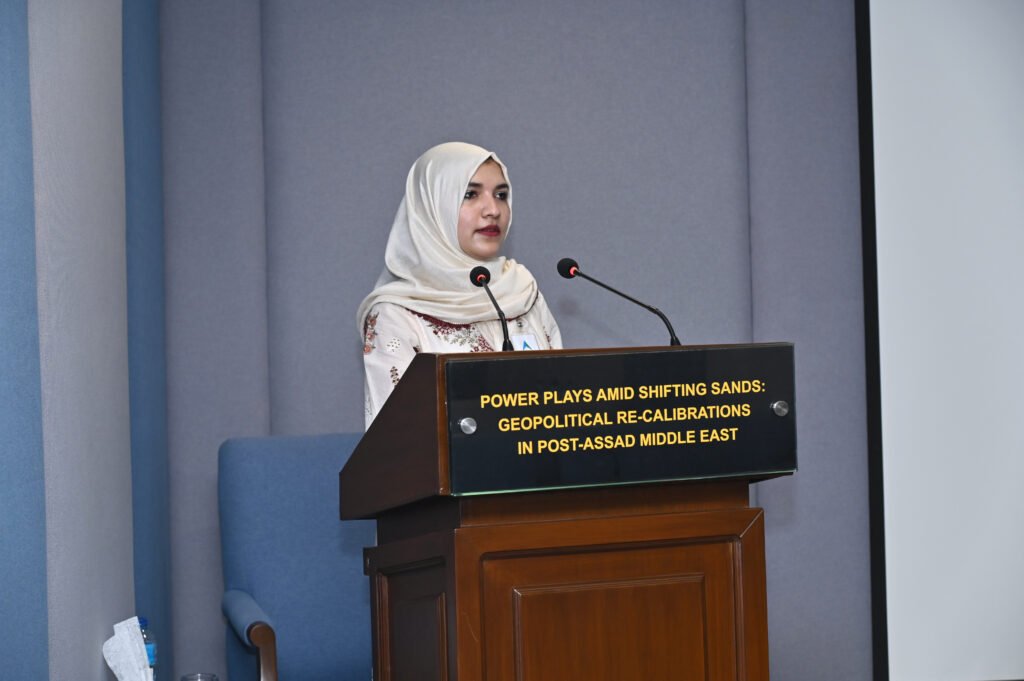
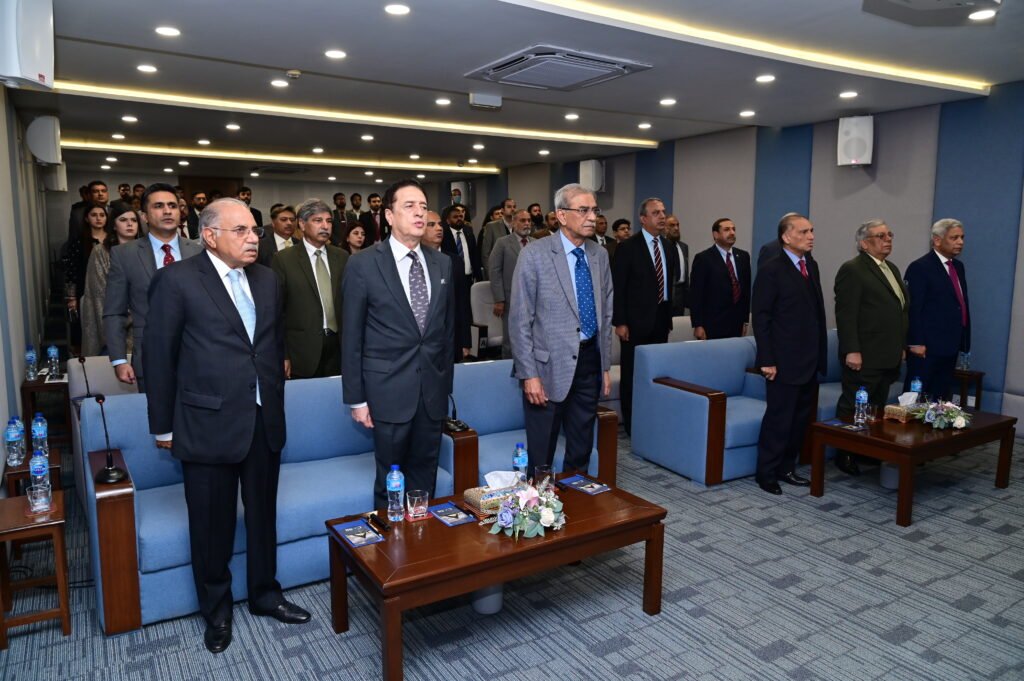
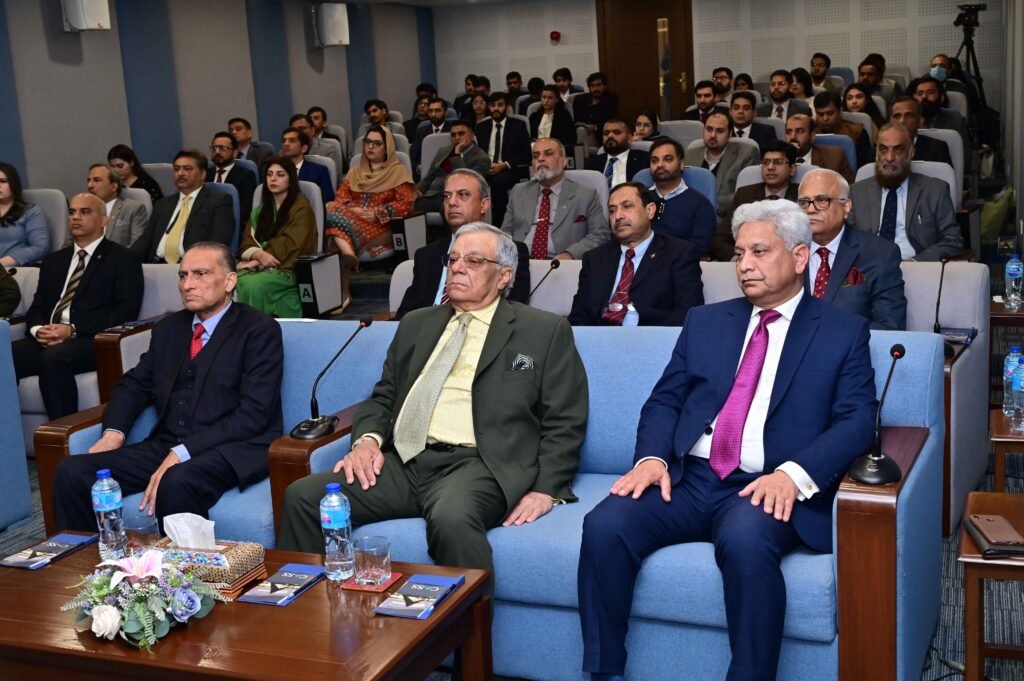



CASS LAhore

The Centre for Aerospace & Security Studies (CASS) was established in July 2021 to inform policymakers and the public about issues related to aerospace and security from an independent, non-partisan and future-centric analytical lens.
CASS Newsletter

@2025 – All Right Reserved with CASS Lahore.
- Home
- About Us
- Research Domains
- Publications
- Events
- Gallery
- Contact Us
@2021 - All Right Reserved. Designed and Developed by PenciDesign



